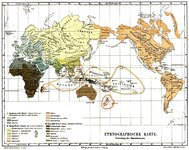Critical Summary of Zionism
Zionism is a political, nationalist, and ideological movement that emerged in the late 19th century with the goal of establishing a Jewish homeland, primarily in response to rising antisemitism in Europe. It culminated in the establishment of the modern state of Israel in 1948. While Zionism has achieved significant success in its core objective, it remains a deeply contested and polarizing subject, especially regarding its historical, political, and ethical implications.
Zionism was initially a secular nationalist response to centuries of Jewish persecution, particularly in Europe. Key figures like Theodor Herzl advocated for a sovereign Jewish state as a refuge from antisemitism. While rooted in Jewish history and culture, early Zionism often clashed with religious Jewish groups—some of whom opposed it on theological grounds, believing that only a messianic event could return Jews to the Holy Land.
Zionism developed in various ideological strands:
Critics argue that Zionism shares features with European settler-colonialism. The establishment of Israel involved the displacement of hundreds of thousands of Palestinians in 1948 (known as the Nakba, or "catastrophe"). Zionism is thus viewed by many Palestinians and postcolonial scholars as a colonial project that prioritized Jewish self-determination at the expense of the indigenous Palestinian population.
The Israeli–Palestinian conflict remains the most significant consequence of Zionism. The ongoing occupation of the West Bank, settlement expansions, and blockade of Gaza are often tied to Zionist policies, and critics argue that they perpetuate systemic inequality and human rights violations.
Zionism has been criticized for promoting an ethnic-based nationalism that privileges Jews over non-Jews in Israel and the occupied territories. Laws like the 2018 Nation-State Law, which declares Israel the nation-state of the Jewish people, have been seen as marginalizing minorities, particularly Palestinian citizens of Israel.
Some Jewish communities, particularly in the diaspora, critique Zionism’s claim that Jewish identity is incomplete without allegiance to Israel. Others oppose Israel’s actions but feel pressured to either support it unconditionally or face accusations of disloyalty or antisemitism.
Zionism remains a deeply significant and contested ideology. For many Jews, it represents liberation, survival, and national revival. For many Palestinians and critics, it is associated with dispossession, inequality, and ongoing conflict. Any critical assessment must therefore acknowledge both its historical context as a response to Jewish suffering and its complex, often painful consequences—particularly for the Palestinian people.
Zionism is a political, nationalist, and ideological movement that emerged in the late 19th century with the goal of establishing a Jewish homeland, primarily in response to rising antisemitism in Europe. It culminated in the establishment of the modern state of Israel in 1948. While Zionism has achieved significant success in its core objective, it remains a deeply contested and polarizing subject, especially regarding its historical, political, and ethical implications.
Historical Roots and Ideological Foundations
Zionism was initially a secular nationalist response to centuries of Jewish persecution, particularly in Europe. Key figures like Theodor Herzl advocated for a sovereign Jewish state as a refuge from antisemitism. While rooted in Jewish history and culture, early Zionism often clashed with religious Jewish groups—some of whom opposed it on theological grounds, believing that only a messianic event could return Jews to the Holy Land.
Zionism developed in various ideological strands:
- Political Zionism (Herzl): Emphasized diplomacy and state-building.
- Labor Zionism (Ben-Gurion): Focused on socialism and pioneering agricultural settlements.
- Revisionist Zionism (Jabotinsky): Advocated for a more militant, right-wing approach.
- Religious Zionism: Combined Jewish faith with nationalist goals.
Achievements
- Creation of the State of Israel (1948): A major success for Zionists, giving Jews a national homeland.
- Jewish Immigration: Facilitated the migration of millions of Jews, especially after the Holocaust and from Arab countries.
- Cultural Revival: Contributed to the revival of Hebrew as a spoken language and a flourishing of Jewish culture and identity.
Criticism and Controversy
1.
Critics argue that Zionism shares features with European settler-colonialism. The establishment of Israel involved the displacement of hundreds of thousands of Palestinians in 1948 (known as the Nakba, or "catastrophe"). Zionism is thus viewed by many Palestinians and postcolonial scholars as a colonial project that prioritized Jewish self-determination at the expense of the indigenous Palestinian population.
2.
The Israeli–Palestinian conflict remains the most significant consequence of Zionism. The ongoing occupation of the West Bank, settlement expansions, and blockade of Gaza are often tied to Zionist policies, and critics argue that they perpetuate systemic inequality and human rights violations.
3.
Zionism has been criticized for promoting an ethnic-based nationalism that privileges Jews over non-Jews in Israel and the occupied territories. Laws like the 2018 Nation-State Law, which declares Israel the nation-state of the Jewish people, have been seen as marginalizing minorities, particularly Palestinian citizens of Israel.
4.
Some Jewish communities, particularly in the diaspora, critique Zionism’s claim that Jewish identity is incomplete without allegiance to Israel. Others oppose Israel’s actions but feel pressured to either support it unconditionally or face accusations of disloyalty or antisemitism.
Defenses of Zionism
- Right to Self-Determination: Proponents argue that Jews, like any other people, have a right to self-determination and statehood, especially after centuries of statelessness and persecution.
- Security and Survival: Israel is seen as a necessary refuge for Jews worldwide, especially in light of historical and contemporary antisemitism.
- Democratic Values: Supporters emphasize that Israel, despite its flaws, is a democracy in a region with few others, and has strong civil institutions and legal protections for minorities (though contested).
Conclusion
Zionism remains a deeply significant and contested ideology. For many Jews, it represents liberation, survival, and national revival. For many Palestinians and critics, it is associated with dispossession, inequality, and ongoing conflict. Any critical assessment must therefore acknowledge both its historical context as a response to Jewish suffering and its complex, often painful consequences—particularly for the Palestinian people.




